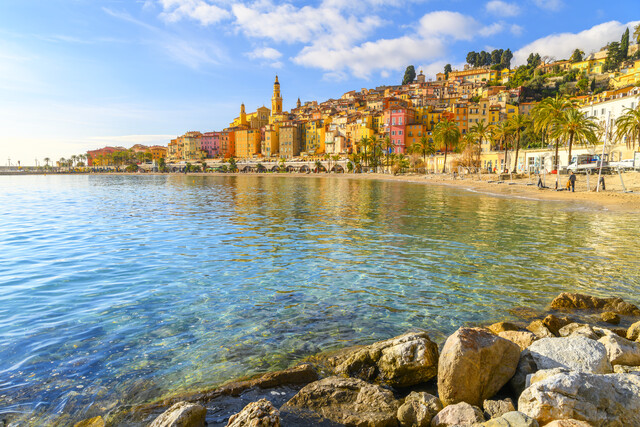| Introduction |
| Establishing a Relationship with Suppliers |
The first thing you're going to need to do to establish such a relationship is to perhaps sign an agency sales agreement that addresses your ability to claim commissions and to pay commissions to others in conducting your business. An Airline Reporting Corporation (ARC) number was often utilized in the past, and though it is still used today, the ARC is giving way to other methods of verifying to suppliers that you are a legitimate and professional travel agent in many states. Depending on the state in which you live, some travel agents are required to register by posting bonds or paying travel organization registration fees.
Travel agency numbering systems that are recognized as being legitimate among the travel industry include:
*ARC (Airline Reporting Corporation) - Independent travel agents may apply for an ARC appointment as long as they meet eligibility requirements for commercial business licensing, indicating that their business will meet all the qualifications necessary for such a designation. In addition, the ARC has developed an Electronic Service Reservations Provider program that enables individual travel agents to obtain an ESRP identification number by filling out an application and sending appropriate fees to the ARC. However, because most member airlines no longer pay commissions, and because the payment of fees will generate a number for anyone who pays such fees, there is no guarantee that this qualification is completely beneficial these days.
*IATA (International Airline Travel Agent) network - In its early years, this organization issued travel agent ID cards. In order to obtain such an ID card, an individual had to be an endorsed travel agent. To qualify, a travel agent must be able to show that he or she has been in business for at least a year, made a minimum of $5,000 in commissions, and maintained a business bank account for a minimum of one year. It also requires an effective Effective Errors and Omissions (E&O) policy and two letters of recommendation from industry suppliers. The travel agent also must be able to guarantee that he or she has no pending or unresolved complaints, belongs to a professional travel association, and has a business ad in the local yellow pages of his or her community.
*CLIA (Cruise Lines International Association) - Home-based travel agents, along with those who work in traditional travel agencies, make a large part of their income by selling cruise line tickets and tours. A home-based travel agent who focuses on cruises can earn commissions of more than 10 percent. In order to join the Cruise Line International Association, a travel agent must submit an application. The application will be evaluated and if you are accepted, you will receive a CLIA identification number. This number entitles travel agents to earn commissions and other perks from most cruise lines who belong to CLIA. The membership fee currently is hovering around $400.
"Pseudo" Identification Numbers -Because of the current popularity of the home-based travel agent industry, many suppliers will provide you with a pseudo-ERC number, which basically allows a travel agent to have an open account with suppliers and the ability to approach sales departments and establish agency relationships when making reservations. These 9- or 10-digit numbers can be anything from your telephone number, to your Social Security Number or a number that is given to you by a supplier.
| Making Sales |
Direct mail is one route, but in utilizing such a campaign, the travel agent must be very specific about his or her target audience so as not to waste money. Start your promotional or marketing efforts with family and friends and branch out from there to neighbors, acquaintances, and local business owners. Business associates, organizations, and local clubs are also a good place to start with your marketing and sales campaign.
|
Do be advised that like many of us, junk mail immediately ends up in the trashcan. Many people automatically throw metered mail into the trash. On the other hand, first-class mail that is hand addressed and stamped by hand will more likely be read. When sending newsletters and flyers, make it very clear what you are offering. In most cases, you will have about one second to interest your potential clients. |
A home-based travel agent may also engage in proactive marketing by using personalized correspondence. Using your home office and mailing list software, you can draft a single letter that can then be addressed and prepared for dozens, if not hundreds, of acquaintances, friends, and family members. The recipients of such letters, or newsletters that offer bargains, articles of interest, and offer new fare announcements, may appreciate the time and effort you have spent sending them this information. Even if they don't take advantage of the offer at that particular time, it is very likely they will do so in the future.
In every piece of mail, newsletter, brochure or postcard that you create and generate, always remember to include a response card, or redeemable discount coupons that encourage a client to "take action." This method encourages an individual to do something as a result of your ad, newsletter, brochure, or postcard. Such responses may include submitting a coupon, sending a response card, e-mailing a reply, or calling you on the telephone.
|
Advertising in magazines, the Yellow Pages, local newspapers, or community event newsletters is also a wonderful way to spread the word about your business. You can also promote your new business by attending trade shows, giving talks or seminars at local schools, libraries, or community events. Creating a travel club or speaking at local bookstores, Chambers of Commerce, and local churches are great source of clients and ideas for the travel agent. |
| Conclusion |
| Introduction |
| Different Types of Tours |
|
Tours may be self-directed, solitary, escorted, or overseen by national park employees, professional tour guides, or local experts. Cruise lines are also very popular among travelers - especially those that offer directed or escorted tours along the cruise route. An experienced travel agent will use a variety of resources to learn about tours offered by tour companies, cruise lines, hotels and resorts, and will understand the difference between group travel, cruise travel, and special interest travel.
For example, many tour companies offer high commissions to travel agents who book travelers for their tours, depending on destination as well as the number of people they might sign up for a specific tour.
|
Cruise lines offer tour options that may include both escorted and self-directed tour groups and guides, according to the wishes of passengers at various stops along the travel route.
Group travel may be especially beneficial to a travel agent, because increased profits are often made through the organization, marketing, and operation of group travel discounts and paperwork. Many groups who belong to travel clubs, or who engage in certain hobbies or interests, may travel with groups year after year. One of the most beneficial types of escorted tour travel is one that caters to special interests for international groups.
| Cruise Travel Tours |
| Special Interest Travel Tours |
Are you a fan of spelunking? Do you like historical tours, museum tours, wildlife tours or photo safaris? Today, tour guides and tour companies offer both escorted and self-directed tours that meet the needs of just about anybody. Whether you'd like to hunt ghosts, visit battlefields, or soak up arts and culture, it's a good bet that you'll be able to find someone who specializes in specific interests.
Travel agents should be familiar with the most popular types of tour destinations and options for their clients. Whether such tours cater to adventure and sports travel, or to markets that appeal to more mature adults or seniors, knowing what's out there and how to get the best services and options for your clients will stand you in good stead.
There are so many different types of tours available, it pays to explore those that will appeal to even your most adventuresome clients: mountain climbing, surfing, white water rafting, hiking and bicycle tours are all options to consider.
Travel agents familiar with popular tourism regions around the world, and who are able to exploit the advantages of the Internet for research, will generate satisfaction, loyalty, and word-of-mouth for his or her travel agency business.
| Conclusion |

























